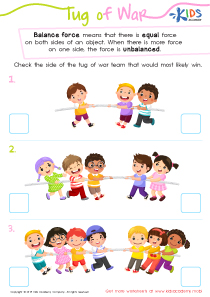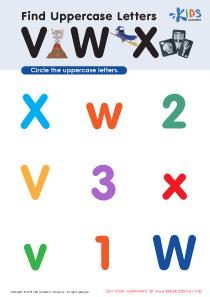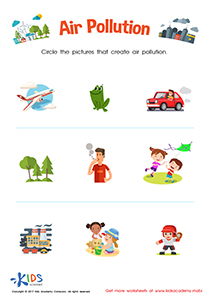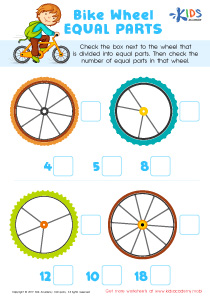Normal Sound and Light Quizzes for 6-Year-Olds
3 results
3 filtered results
Clear all filters3 filtered results
-
From - To
Dive into the exciting world of "Normal Sound and Light for 6-Year-Olds" with our interactive assessment quizzes! Perfectly crafted for curious young minds, these quizzes offer a fun and engaging way to explore the basics of sound and light. As children navigate through each question, they'll receive instant feedback, helping them understand key concepts and learn at their own pace. Whether it's discovering how shadows are formed or the magic behind different sounds, our quizzes are designed to spark curiosity and enhance learning. Join us on this enlightening adventure and watch your child's knowledge of sound and light grow!
In today's fast-paced educational landscape, parents and educators are constantly on the lookout for innovative ways to engage children in their studies, especially in foundational subjects such as science. One area of science that fascinates children is the study of Sound and Light. Understanding these concepts not only lays the groundwork for future scientific learning but also stirs curiosity about the world around us. This is where our Normal interactive quizzes on Sound and Light specifically tailored for 6-year-olds come into play, offering a unique blend of learning and fun.
The importance of introducing topics like Normal Sound and Light to 6-Year-Olds cannot be overstated. At this tender age, children are naturally curious, eager to learn, and highly receptive to new concepts, especially when presented in an interactive and engaging manner. Our quizzes are designed with this age group in mind, focusing on the fundamental aspects of how sound is produced and how light enables us to see the world around us.
The interactive quizzes on Normal Sound and Light for 6-Year-Olds serve several critical roles in a child's educational journey. Firstly, they transform abstract concepts into tangible, understandable ideas that young minds can grasp. Through interactive questions and answers, children learn, for example, about the sources of sound, the basics of light shadows, and how these elements are essential in our day-to-day life. This hands-on approach ensures that children are not just passive recipients of information but active participants in their learning process.
Moreover, these quizzes are crafted to cater to the diverse learning paces and styles of 6-year-olds. Whether a child is a visual learner, an auditory learner, or learns best through hands-on experience, our quizzes offer a variety of question formats and interactive elements to meet these needs. This inclusivity boosts confidence and fosters a love for learning, particularly in the realms of science and technology.
Another significant benefit of using our Normal interactive quizzes on Sound and Light for 6-Year-Olds is the immediate feedback mechanism. Children can instantly see the results of their quiz attempts, which not only reinforces their learning but also helps them identify areas that need improvement. This instant feedback loop is crucial for self-paced learning, allowing children to progress at their own speed and build a robust understanding of the subject matter.
Furthermore, these quizzes are an excellent way for parents and educators to gauge a child's comprehension and retention of the topics covered. The results can reveal insights into a child's strengths and areas where additional support or resources might be beneficial. This valuable information can guide adults in tailoring subsequent learning experiences to better suit each child's needs.
In conclusion, our Normal interactive quizzes on Sound and Light for 6-Year-Olds are more than just educational tools; they are gateways to discovery and understanding, designed to spark curiosity and inspire a lifelong love of learning. By integrating these quizzes into a child's study routine, we can support their holistic development, ensuring they have a strong foundation in these essential scientific concepts, all while enjoying the journey of exploration and learning.










.jpg)
